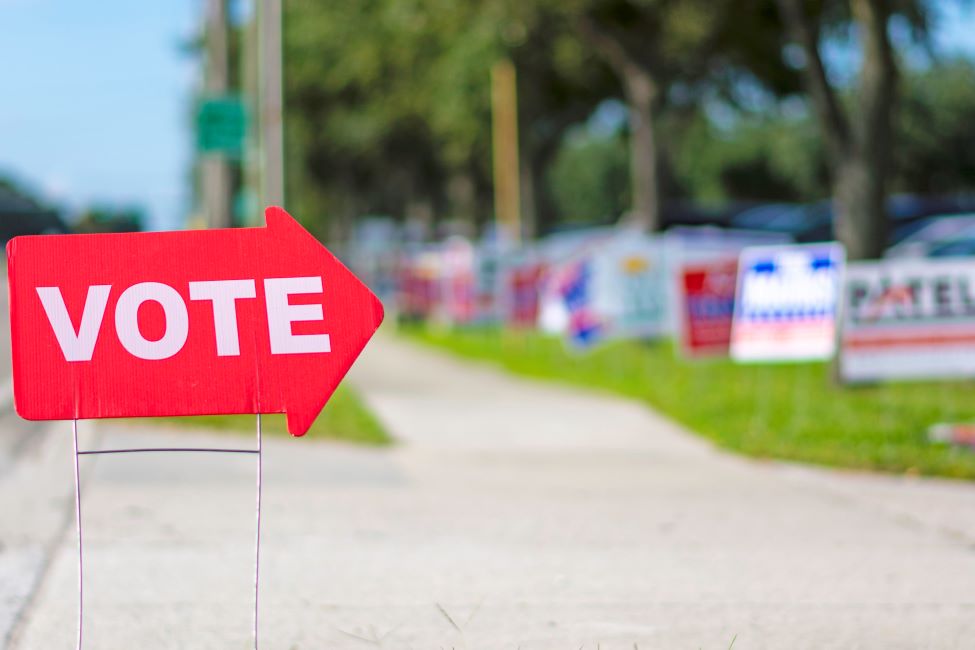FAU/Mainstreet poll shows races tightening in Florida

Florida voters share opinions on 2024 election
Former U.S. President Donald Trump continues to hold an advantage over incumbent U.S. President Joe Biden among Florida voters who seem divided on culture war issues but united on economic concerns, according to the latest findings from the FAU Political Communication and Public Opinion Research Lab (PolCom Lab) and Mainstreet Research. The release of today’s poll also includes a video analysis of the results, featuring Antonio Fins, politics editor at The Palm Beach Post, and Kevin Wagner, Ph.D., co-director of the PolCom Lab. The video can be viewed at faupolling.com.
Trump Maintains Lead over Biden in Florida, But Gap Narrows
The poll of Florida voters found that 43% of likely voters expressed support for Trump, compared to 37% backing Biden. Another 10% favored Robert Kennedy Jr., while only 6% remain undecided. This reflects a slight tightening from April when Trump led Biden 49% to 40%.
“While Trump is still in front, these numbers suggest Biden has made modest gains and kept the race competitive in the nation’s largest swing state,” said Dukhong Kim, Ph.D., associate professor of political science at FAU.
Biden Banks on Youth, Minority Turnout as Demographic Divides Remain
Candidates still face steep challenges (and some possibilities) in terms of some voter demographics, the poll shows. Younger voters ages 18 to 49 reported that they are more open to third-party candidates (18%) compared to those 50 and older (3%).
Trump draws higher support among white voters without college degrees (57%) than college-educated whites (43%). Meanwhile, Biden performs strongest with Black voters (68%).
“The demographic patterns we’re seeing suggest that Biden’s campaign needs to catch up among the traditional Democratic party coalition partners – women, younger voters, Black voters, and Hispanic voters,” Kim said. “But Trump is holding onto his base among white voters, especially those without college degrees.”
Trump draws higher support among white voters without college degrees (57%) than college-educated whites (43%). Meanwhile, Biden performs strongest with Black voters (68%).
“The demographic patterns we’re seeing suggest that Biden’s campaign needs to catch up among the traditional Democratic party coalition partners – women, younger voters, Black voters, and Hispanic voters,” Kim said. “But Trump is holding onto his base among white voters, especially those without college degrees.”
Mucarsel-Powell Mounts Surge, Closing in on Scott for Senate Seat
In the Florida U.S. Senate race, the potential matchup between Republican U.S. Sen. Rick Scott and former Democratic U.S. Rep. Debbie Mucarsel-Powell has tightened considerably since the spring. Among likely voters, Scott narrowly leads 45 to 43, which is within the poll’s margin of error. Scott had led Mucarsel-Powell by 17 points in April.
“Mucarsel-Powell was largely unknown in earlier surveys,” said Luzmarina Garcia, Ph.D., assistant professor of political science at FAU. “However, as voters have been introduced to her, she has been gaining in the race. If this trend holds, it could be close in November.”
Immigration Fuels Red-Blue Divide as Pocketbook Woes Unite Voters
The top issues cited by Florida voters in the poll include the economy (38%), immigration (25%), abortion (15%), and crime (6%). While both parties are concerned with the economy, priorities diverge sharply after that issue, with Republicans laser-focused on immigration while Democrats pointing to abortion as a leading concern.
“These issue priorities reflect the national messaging battle being waged by both parties heading into 2024,” said Aaron Veenstra, Ph.D., associate professor in the School of Communication and Multimedia Studies at FAU. “Economic factors like cost of living still weigh more heavily than hot-button cultural issues.”
DeSantis Dynasty? Governor’s Wife Soars in Potential 2026 Primary
Looking ahead to Florida’s 2026 gubernatorial election, the poll tested potential Republican primary matchups. Among GOP voters, 43% prefer Florida First Lady Casey DeSantis, and more than 19% prefer U.S. Rep. Byron Donalds. Other potential candidates, such as Jimmy Patronis, CFO of the state of Florida, and U.S. Rep. Matt Gaetz, trail further behind.
“There’s clearly an appetite among Republican voters to see Casey DeSantis carry on her husband’s legacy as governor,” said Kevin Wagner, Ph.D, co-director of FAU’s PolCom Lab and professor of political science. “Her high name recognition gives her an early advantage, but the race is still very much wide open.”
The survey of 883 Florida adults was conducted from Saturday, June 8 to Sunday, June 9 via interactive voice response and an online panel. No margin of sampling error can be calculated for the full sample, but a sample of this size would carry a margin of error of approximately +/- 3.3%.
-FAU-
Latest News Desk
- FAU Adds State-of-the-Art MRI System to Advance Research CapabilitiesFAU has added a new state-of-the-art MRI system to its research infrastructure, marking a transformative step forward for groundbreaking studies in neuroscience, clinical health and medical advancements.
- FAU Hosts ABC's 'Sharks' for First-of-its-Kind CompetitionThe judges of ABC's "Shark Tank" will be coming to Florida Atlantic University for its very own CrocTank, the first-of-its-kind live event on Dec. 4 at the Carole and Barry Kaye Performing Arts Auditorium.
- Arslan Munir, Ph.D., Pioneer in Smart Technologies, Joins FAUThe FAU College of Engineering and Computer Science recently welcomed Arslan Munir, Ph.D., an internationally renowned expert, researcher and pioneer in advanced computing and smart technologies.
- VR Could be a Gamechanger in Police-Civilian Crisis EncountersAn FAU College of Social Work and Criminal Justice study immersed police officers in virtual reality training using a realistic mental illness scenario to enhance empathy and complement traditional training.
- STEM Teachers in High-need Schools Resilient Despite ChallengesAn FAU College of Education researcher collaborated on a study examining 30 years of STEM teacher trends, focusing on qualifications and changes in high-need, primarily high-poverty U.S. schools.
- Alcohol-Related Deaths in the U.S. More than Double from 1999 to 2020FAU researchers explored overall trends as well as by age, gender, race and region. The sharpest spike occurred among 25-34-year-olds (nearly fourfold), while individuals aged 55-64 had the highest rates.






